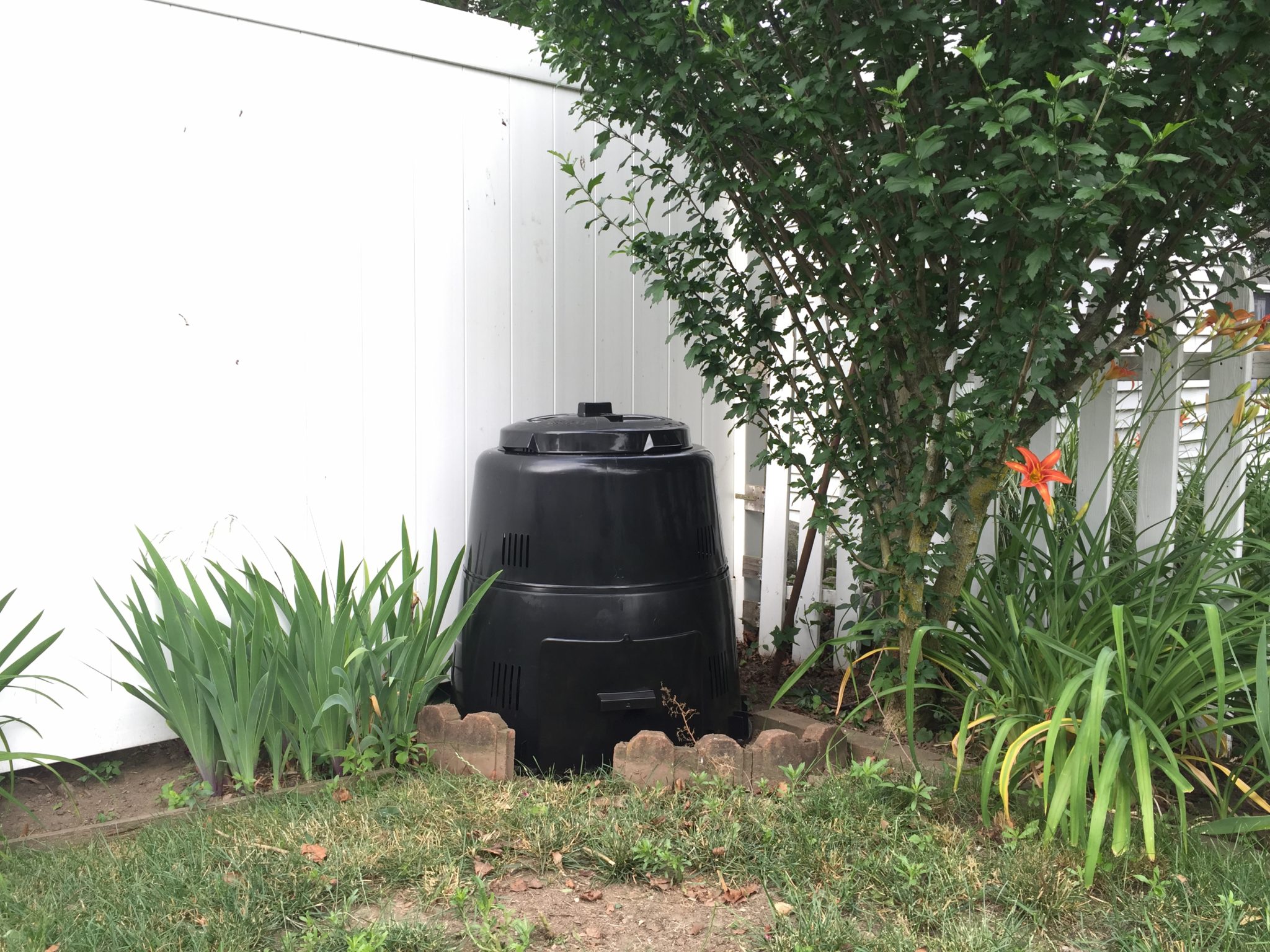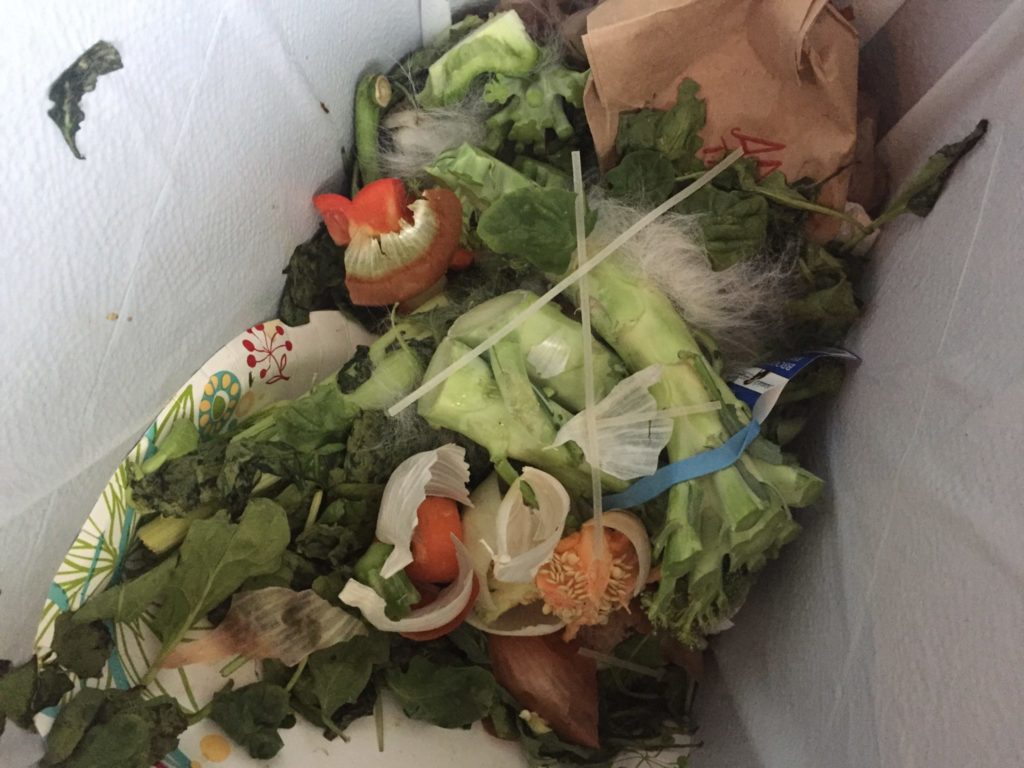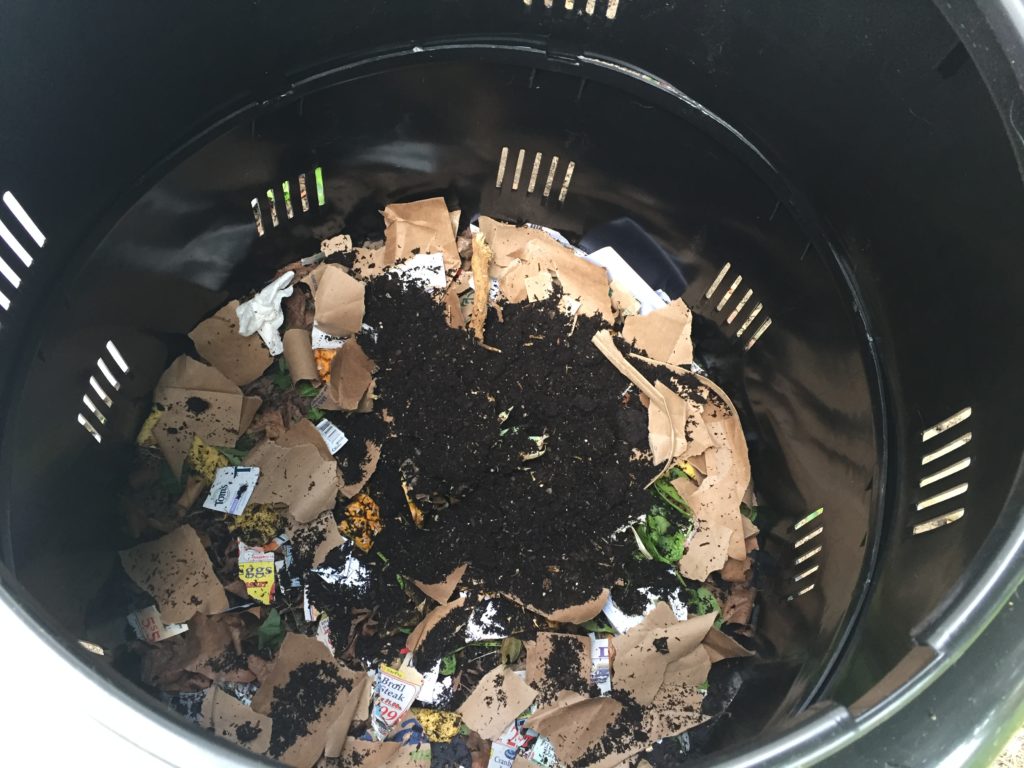Composting is a minimal effort way to help the environment and your garden. With many composting methods available, you don’t have to have a ton of space to start. Here’s the story of how I got inspired to begin composting.
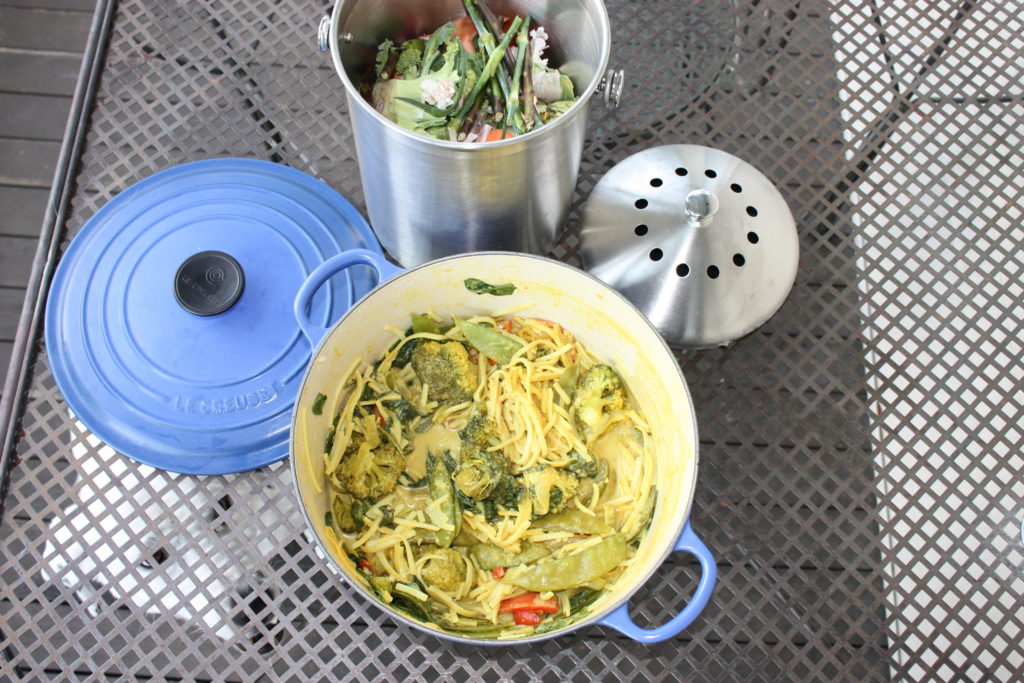
“Sadie, get out of the trash” I shouted as my dog knocked over the bin and ran off with a broccoli stalk. As I went to gather and return the spilled scraps to the bucket, I was surprised at how much veggie waste I had created while making one of my favorite recipes – Thug Kitchen’s Coconut Curry Soup. It got me thinking about the quantity of good organic material I was chopping and tossing – especially as we’ve shifted to eating an increasingly plant based diet. There had to be a more productive way to get rid of the scraps rather than sending them to a landfill in a plastic bag. Composting was the answer – and it’s super easy!
Why Composting Is Awesome
Composting has many benefits for our planet and our gardens. Environmentally, composting helps to save limited landfill space. In fact, 20-30% of the things we discard include compostable food scraps, yard waste and paper. Skipping the landfill and allowing organic material to break down in aerated environments also reduces the harmful release of methane gas. In our gardens, the nutrient rich compost we generate can be used as a chemical-free fertilizer and pest deterrent for your lawn and plants. When applied generously as a mulch, compost conserves water by keeping beds and yards hydrated. Additionally, compost can also help balance soil pH and fight erosion. It’s also super satisfying to watch your trash transform into something useful!
How to Get Started
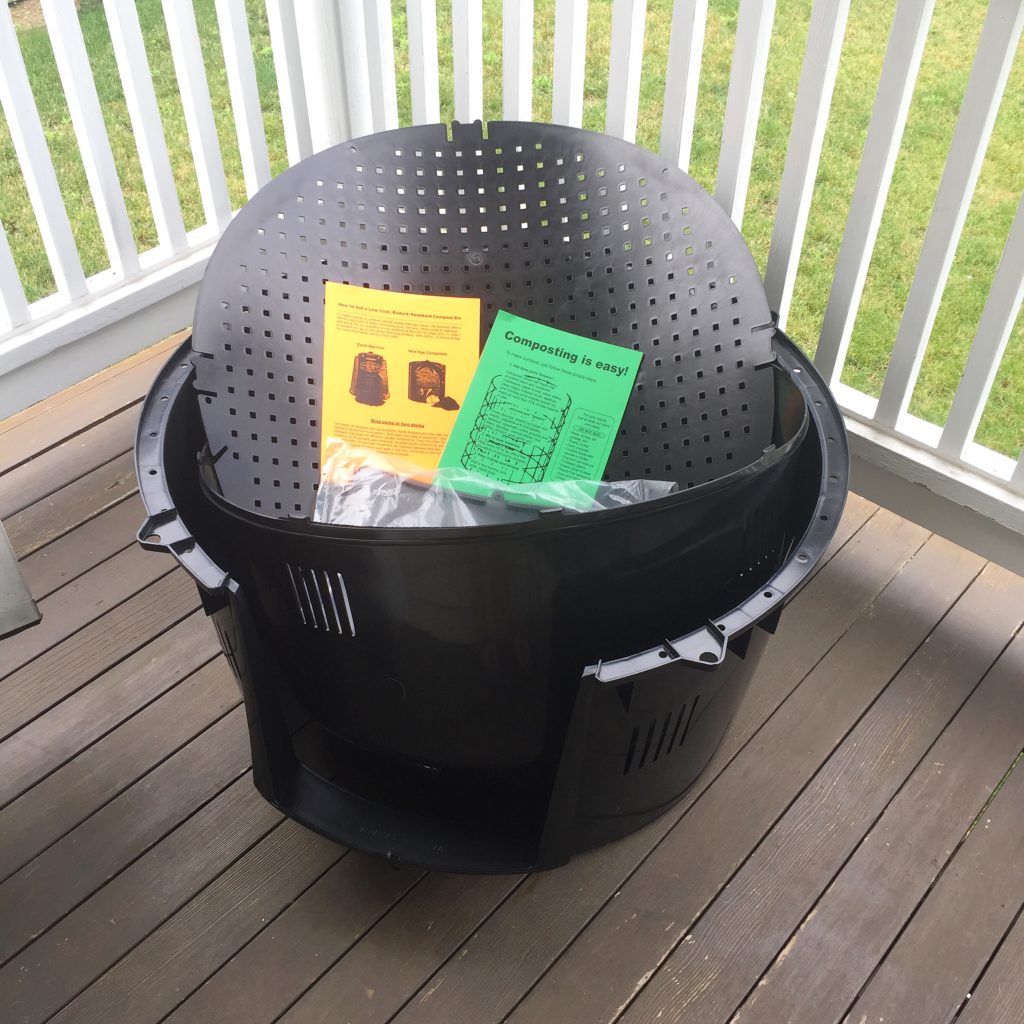
Before diving in, do a bit of research and decide which type of composting is right for your household. If you have outdoor space, a traditional compost pile, or bin may work for you. Vermicomposting (composting with worms), or indoor composting machines may be better if you lack outdoor space. In the event that you don’t want to maintain your own compost, but still want to divert your useful scraps, link up with a local community garden and donate your organic materials, or check to see if your town offers an option for curbside pickup.
Here are a few tips that I can share from my experience so far:
- Buy, or DIY a compost bin to fit your space. If composting outdoors, you don’t need to spend a ton of money on a fancy one. Many municipalities offer deep discounts on the Earth Machine (that’s what we have), or New Age composter, so check in with your local DPW.
- Set it up in a convenient spot – it’ll make it even less of a to-do.
- Keep a small kitchen compost pail to collect your compost contributions. You can get ones with carbon filters to eliminate odors. Give it a good rinse each time you empty it into your main pile.
- Mix your “greens” (fruit & veggies, plant trimmings, grass clippings, coffee grounds, etc.) and “browns” (dead leaves, straw, paper & cardboard, sawdust, etc.). Unless you’re using an indoor composter that can explicitly handle it, don’t add meats, or oils – it’ll make your compost smelly and attract unwanted critters.
- Keep it aerated, moist, and moving – water as needed (not soaking) and turn your compost about once a week.

